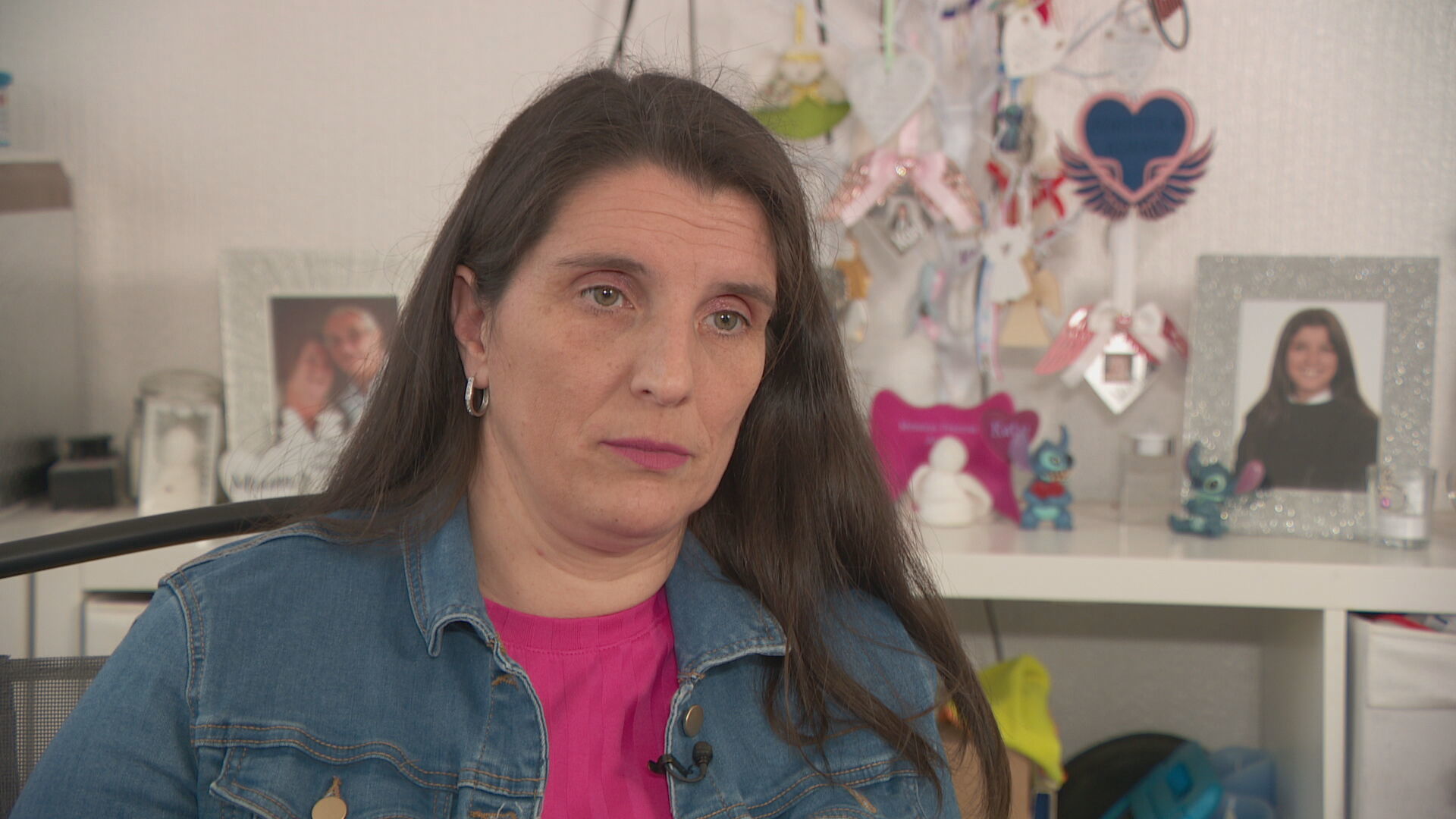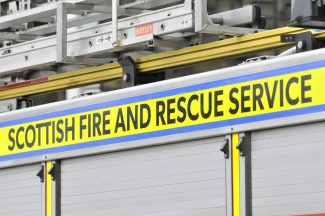The mum of a young girl who died after suffering a severe asthma attack has called for more training to help people understand “how dangerous” the condition is.
Asthma affects an estimated 368,000 people in Scotland with over 100 people dying from the condition every year.
Tracy Bulpitt, from Cumbernauld, spoke to STV News following the death of her 12-year-old daughter Katy in 2021.
The 43-year-old said that Katy, who had asthma from a young age, had managed her conditions well with inhalers before it started getting more severe around the age of seven.
 STV News
STV News“On the morning she passed away, she had come home from school with a slight headache, as teenagers that age do.
Ms Bulpitt was on the school run with Katy’s siblings when she got a call from the neighbour who said Katy was struggling to breathe.
The neighbour was able to get access to the home but by the time they got in Katy collapsed in their arms.
“CPR was started immediately, paramedics were here within seven minutes but unfortunately because of the severity of the attack it wasn’t enough, and she’d actually also gone into cardiac arrest,” Ms Bulpitt said.
Since Katy’s death, her mum has worked to raise awareness around the condition and wants people to understand how dangerous it is.
“There shouldn’t be a stigma around it.
 STV News
STV News“People should feel comfortable to be able to talk to their peers and let them know, so if they are out and they don’t feel well, their friends and family and everybody else knows what they need to do.”
The Scottish Government says its first Respiratory Care Action Plan, published three years ago, sets out priorities for driving improvements in prevention, diagnosis, treatment and support.
Ms Bulpitt believes enhanced guidance and training for both people with asthma and professionals could be lifesaving.
“The amount of deaths there’s been over this ten-year period after the government have said that yeah, there will be changes and the changes haven’t happened,” she said.
Asthma + Lung UK say these deaths like Katy’s are “preventable” and are urging the government to introduce national targets to end preventable asthma deaths.
The calls come after a new study that found the the annual asthma death toll has risen by a quarter.
The National Review of Asthma Deaths, released in 2014, found that two-thirds of asthma deaths were preventable and since then 12,000 people have died from the condition.
New analysis from the charity found that four people die from asthma every day and many more continue to be at risk, with tens of thousands admitted to hospital for life-threatening asthma attacks each year.
The charity added that follow-up care for those with asthma is “woefully inadequate” with a study showing that two in three people are not getting an an appointment with a GP or asthma nurse within the recommended 48 hours after an emergency admission, when they are most at risk of another serious attack.
Furthermore, two in five people who ended up in hospital didn’t have a follow-up within 28 days.
The charity says the government must also dedicate sufficient funding to implement the upcoming NICE asthma guidelines, ensuring everyone with the condition receives vital basic care.
Sarah MacFadyen, head of policy and external affairs for Asthma + Lung UK, said: “It’s scandalous that ten years on from NRAD’s recommendations to improve asthma care, four people are still dying needlessly from the condition every day. Asthma care is in crisis.
“People are not getting the care they need and deserve. As a result the UK continues to have one of the worst asthma death rates in Europe.
“We don’t want to be saying the same thing in another ten years, this is a problem we know how to fix.
“With better care and support, people with asthma could manage their condition well and avoid life-threatening asthma attacks, while investment in research and innovation to develop technology to help people self-manage their asthma, could also be transformative like it has for conditions like diabetes.
“Not only will these changes save lives and improve people’s health and quality of life, it will also reduce the impact of poorly controlled asthma on health services and help the NHS.”
Joseph Carter, head of Asthma + Lung UK Scotland said: “Ten years after NRAD, the fact that around 100 people a year are dying of asthma attacks in Scotland is an absolute travesty, particularly when most of them are avoidable.
“This is not acceptable. Around 368,000 Scots have asthma, and with the proper treatment and support, they should be able to live perfectly normal lives.
“We need the Scottish Government to prioritise asthma and other lung conditions, ensuring that people have the right inhalers, are regularly monitored and are empowered to self-manage their condition.”
Dr Andy Whittamore, GP and clinical lead at Asthma + Lung UK, said: “Too often I see people with asthma who have reached a point where they are in danger.
“They don’t, recognise when they need to seek help, for example when they are using their blue reliever inhaler three or more times a week.
“It shouldn’t get to the point where someone is rushed to hospital fighting for breath.
“We need a better awareness of the seriousness of asthma, and a focus on supporting people to manage their condition themselves.
“While healthcare professionals need to have the training, time and resources to understand each individual to ensure they get the basic care they need.
“Good asthma care can really help people get a handle on their condition, so that it has a minimum impact on their day-to-day lives.”
Dr John Dean, clinical vice president at the Royal College of Physicians, added: “A decade ago, RCP’s report provided a clear blueprint for improvement from leaders in asthma care.
“Sadly, NHS care in urgent and emergency care, planned specialist care and primary and community care are unable to deliver the care they know people with asthma need.
“This is unacceptable. Each of these elements needs redesign, and integration to move with patients to a preventive approach, rather than just treating emergencies.
“This needs political will, and a workforce to deliver it. Clinical leaders are ready to lead that change.
“We echo Asthma + Lung UK’s calls for urgent action. It is critical that the report’s recommendations are revisited and implemented so we can improve patients’ quality of life, prevent further needless deaths, and alleviate additional pressures on an NHS workforce which is stretched to capacity.”
Follow STV News on WhatsApp
Scan the QR code on your mobile device for all the latest news from around the country





























